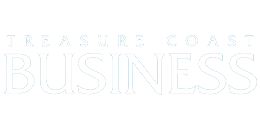Vigilance urged when dealing with COVID-19 economic relief programs
BY TY KIISEL
 With nearly $400 billion on the line between the Economic Injury Disaster Loans and the Paycheck Protection Program, I guess it shouldn’t be a surprise that there would be fraudsters targeting small business owners during these challenging times. Avoiding small business lending scams and fraud related to COVID-19 requires you to be diligent and on the lookout for grant fraud, loan fraud and phishing scams.
With nearly $400 billion on the line between the Economic Injury Disaster Loans and the Paycheck Protection Program, I guess it shouldn’t be a surprise that there would be fraudsters targeting small business owners during these challenging times. Avoiding small business lending scams and fraud related to COVID-19 requires you to be diligent and on the lookout for grant fraud, loan fraud and phishing scams.

Frank Fink began his 48 year career in financial and operations management serving with the United States Air Force as an auditor. Following his military service Fink began his corporate work with Florida Power & Light in their nuclear power division. After 24 years with FP&L, Fink went on to serve with other energy companies, in their nuclear divisions, including the Tennessee Valley Authority, Commonwealth Edison and Exelon Energy. Throughout his career, Fink served in numerous financial and operations management positions, where his responsibilities included: business planning, accounting and financial control functions, business operations, strategic planning, supply chain management, information systems management, project management, estimating and scheduling. Fink holds degrees and certifications from Indian River Community College, Barry and Villanova University.
The Small Business Administration offers some guidance on how scams and fraud schemes work and what activities should throw up a red flag, warning you about possible fraud.
GRANT FRAUD SCHEMES
• The SBA does not initiate contact on either 7a or disaster loans or grants. If you are proactively contacted by someone claiming to be from the SBA, suspect fraud.
• Don’t share personal or business information with them.
LOAN FRAUD SCHEMES
• If you are contacted by anyone promising you SBA loan approval, but requiring payment up front or offering a high-interest bridge loan in the interim, suspect fraud. The SBA does not guarantee approval before an application is submitted and reviewed.
• Any attempt to charge a borrower fees in excess of 3% is likely fraud. The SBA limits fees a broker can charge to 3% for loans of $50,000 or less and 2% for loans of $50,000 to $1 million. Loans of more than $1 million will include an additional ¼%, or 2¼%.
PHISHING SCHEMES
• If you are in the process of applying for an SBA loan and receive an email asking for personally identifiable information, make sure the referenced application number is consistent with the actual application number.
• Don’t assume that something with the SBA logo must be legitimate. These phishing attacks may be attempts to obtain your personal identifiable information to gain access to your bank accounts or to install ransomware/malware on your computer.
• Make sure any email correspondence claiming to be from the SBA is from the SBA. Every email from the SBA will come from accounts ending in sba.gov.
• The presence of the SBA logo on a webpage does not guarantee it is endorsed by the SBA. Verify and cross-reference any information you receive with information available at www.sba.gov.
REPORT SUSPECTED SCAMS, FRAUDS
The Florida Small Business Development Center at Indian River State College advises a business owner to look at anything that seems too good to be true with a skeptical eye — the potential for business lending scams and fraud related to COVID-19 can’t be ignored. Over the coming weeks and months the Florida SBDC at IRSC will make every effort to provide the most current and accurate information as possible, helping business owners and operators make informed decisions and weather the coronavirus storm.
Please report any suspected fraud to the SBA’s Office of the Inspector General. You can report your concerns by calling 800-767-0385.
Please keep in mind this information is changing rapidly and is based on our current understanding of the programs. It can and likely will change. Although we will be monitoring and updating this as new information becomes available, please do not rely solely on this for your financial decisions. The Florida SBDC at IRSC encourages you to consult with your lawyers, certified public accountants and financial advisers.
Treasure Coast Business is a news service and magazine published in print, via e-newsletter and online at tcbusiness.com by Indian River Magazine Inc. For more information or to report news email staff@tcbusiness.com

